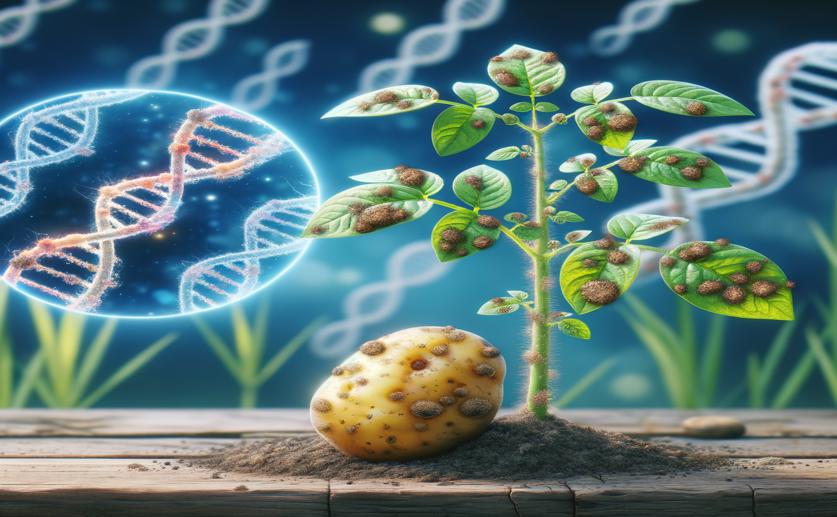
How a Specific Gene Weakens Potato Defenses Against Diseases
Jenn Hoskins
12th August, 2024

Image Source: Natural Science News, 2024
Key Findings
- Researchers from the National Institute of Biology found that the potato protein StPti5 negatively regulates immunity against potato virus Y and Ralstonia solanacearum
- StPti5 is usually destabilized in healthy plants but accumulates in the nucleus upon infection, indicating a sophisticated pathogen-triggered regulatory mechanism
- StPti5's expression is activated by StEIN3 and StEIL1 proteins through the ethylene and salicylic acid pathways, highlighting the importance of hormone crosstalk in plant defense
References
Main Study
1) The StPti5 ethylene response factor acts as a susceptibility factor by negatively regulating the potato immune response to pathogens.
Published 11th August, 2024
https://doi.org/10.1111/nph.20004
Related Studies
2) Multiple levels of crosstalk in hormone networks regulating plant defense.
3) Salicylic acid is an indispensable component of the Ny-1 resistance-gene-mediated response against Potato virus Y infection in potato.



 11th August, 2024 | Jenn Hoskins
11th August, 2024 | Jenn Hoskins